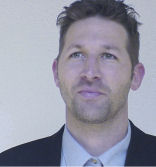Computer Science
Peter Gibbons Memorial Lecture Series: The Health Care Revolution
|
Speaker: Alec Holt, Dept of Information Science, University of Otago
When: Refreshments at 5.30pm, lecture starts at 6.00pm. Alec Holt is the Director of the Health Informatics programme at Otago University. His teaching and research expertise includes Health Informatics, Geographical Information Systems, Case-based Reasoning and Web 2.0.
Synopsis: This concerns the revolution in the healthcare industry that is being driven by electronic and internet-based health care applications. In particular, the impacts of Internet and electronic medical record systems, highlighting the mountain of data that is being created and how it can be used effectively. Topics covered include public health applications, consumer empowerment, spatial and data mining applications. In this high user-generating and sharing phase of the Internet the healthcare industry is in for a shake up. With the increased use of technology and the ubiquitous nature of the internet consumers have become empowered. New technologies and applications act as catalysts to drive the uptake of information and communication technology. In the health sector patients want control of their health records and access to electronic medical record systems. They also want to know about other patients similar to them, the clinical guidelines for their conditions and more information on their drugs, the associated adverse reactions and complications. A further catalyst is that generations Y and Z are particularly immersed in technology. They readily use new technologies and have the internet in their pockets. Internet technologies such as Web 2.0 and mobile technologies are converging to form tools like Twitter (a social networking tool) and there is an increased sophistication in the use of the internet and information on it. The convergence of technology is moving so fast and the potential benefits for the doctor and patient are immense. Conversely is there too much information? Is it too easy to generate information? Is the information correct? The key issues in facing the mountain of data are instant access and new methods of sharing and ranking information. |
 |



